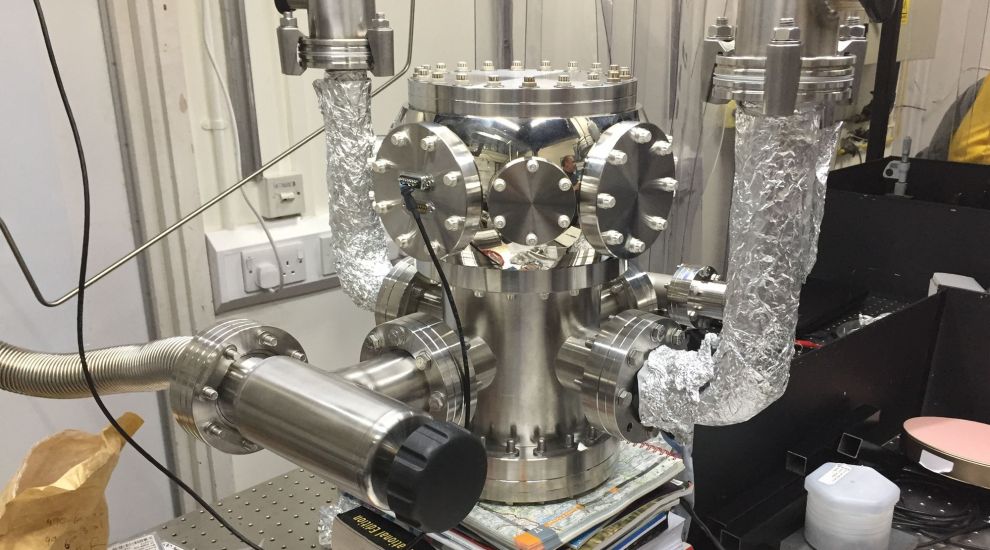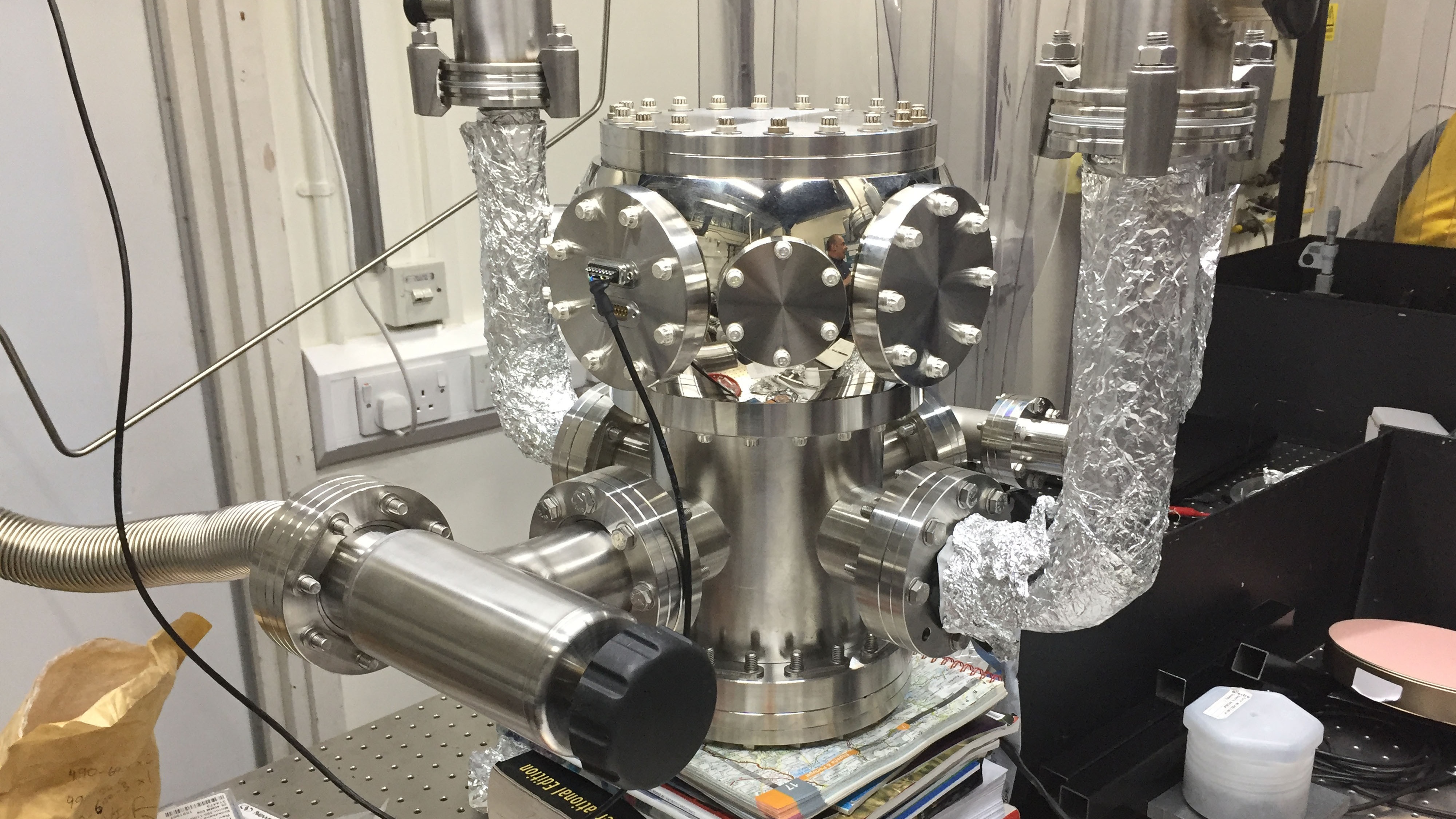
It looks like a prop from Doctor Who or Hollywood’s idea of a mad professor’s crazy invention.
But the glittering lump of steel sprouting foil-wrapped pipes balanced on a stack of books and magazines represents a revolution in computing that could change the world.
The 2ft tall machine housed in a cramped laboratory at the University of Sussex is a prototype ion qubit quantum computer.
Still a work in progress, it is designed to demonstrate technology that marks a leap forward in attempts to build unimaginably powerful computers based on the weird principles of quantum physics.

Scientists hope that in as little as 10 years they will be able to scale up the device to produce the first commercially available universal quantum computer capable of solving myriad different problems.
Quantum computers are the ultimate multi-taskers, carrying out many operations at once to work millions of times faster than conventional computers.
They could theoretically unravel incredibly complex problems in days that would take a modern supercomputer billions of years to solve, and transform fields such as finance, drug discovery, biochemistry, materials science and encryption.
Professor Winfried Hensinger, who heads the university’s quantum technology lab, said: “What we’re constructing here is a ‘universal’ quantum computer, which means you can decide what you want it to solve as opposed to it only performing one task.
“We’re already working with industry partners. In maybe 10 to 15 years a large-scale computer could be available.
“By no means is it going to be small, cheap or energy efficient, but it’s a start. It could be the size of a football pitch, but we hope we can shrink that significantly.”

A conventional computer stores “bits” of information as binary code sequences of zeroes and ones, but a quantum computer “qubit” can be a zero, a one, both a zero and a one, or an infinite number of values in between.
That is due to the strange ability of subatomic particles to be in more than one state at the same time, until they are observed or interfered with. Only then does one or the other value materialise. In a similar way, a spinning coin hides its identity until a hand stops it to reveal a face that is heads or tails.
Unlike other experimental quantum computers, Prof Hensinger’s machine uses individually charged atoms called ions to perform calculations.
Each ion, consisting of the heavy metal called ytterbium, is levitated by an electric field so it floats above a silicon chip.
Laser beams are used to slow the vibrating atoms down and cool them to a fraction of a degree above absolute zero, the coldest temperature possible in nature. It is the controlled energy level of the atoms that provide the computer with units of information.
How is quantum computing becoming a reality? Learn how from Prof Winfred Hensinger at the @BritishSciFest tomorrow 👉 https://t.co/YKBBirs99Q pic.twitter.com/hFqA1ZWIwa
— University of Sussex (@SussexUni) September 4, 2017
Speaking at the British Science Festival in Brighton, Prof Hensinger said even Albert Einstein was “freaked out” by quantum effects and called them “spooky”.
Then 10 to 20 years ago physicists started asking themselves whether it might be possible to build a quantum device that could perform certain computations “unbelievably fast”.
Prof Hensinger added: “What does unbelievably fast mean? Unbelievably fast means that it could calculate something that even the fastest supercomputer in the world would take billions of years to calculate in minutes, days or weeks.
“It means quantum computers can solve problems you couldn’t even dream about solving before.”
While the prototype would only house tens of ions, each representing a qubit, a commercial computer may contain billions, said the professor.